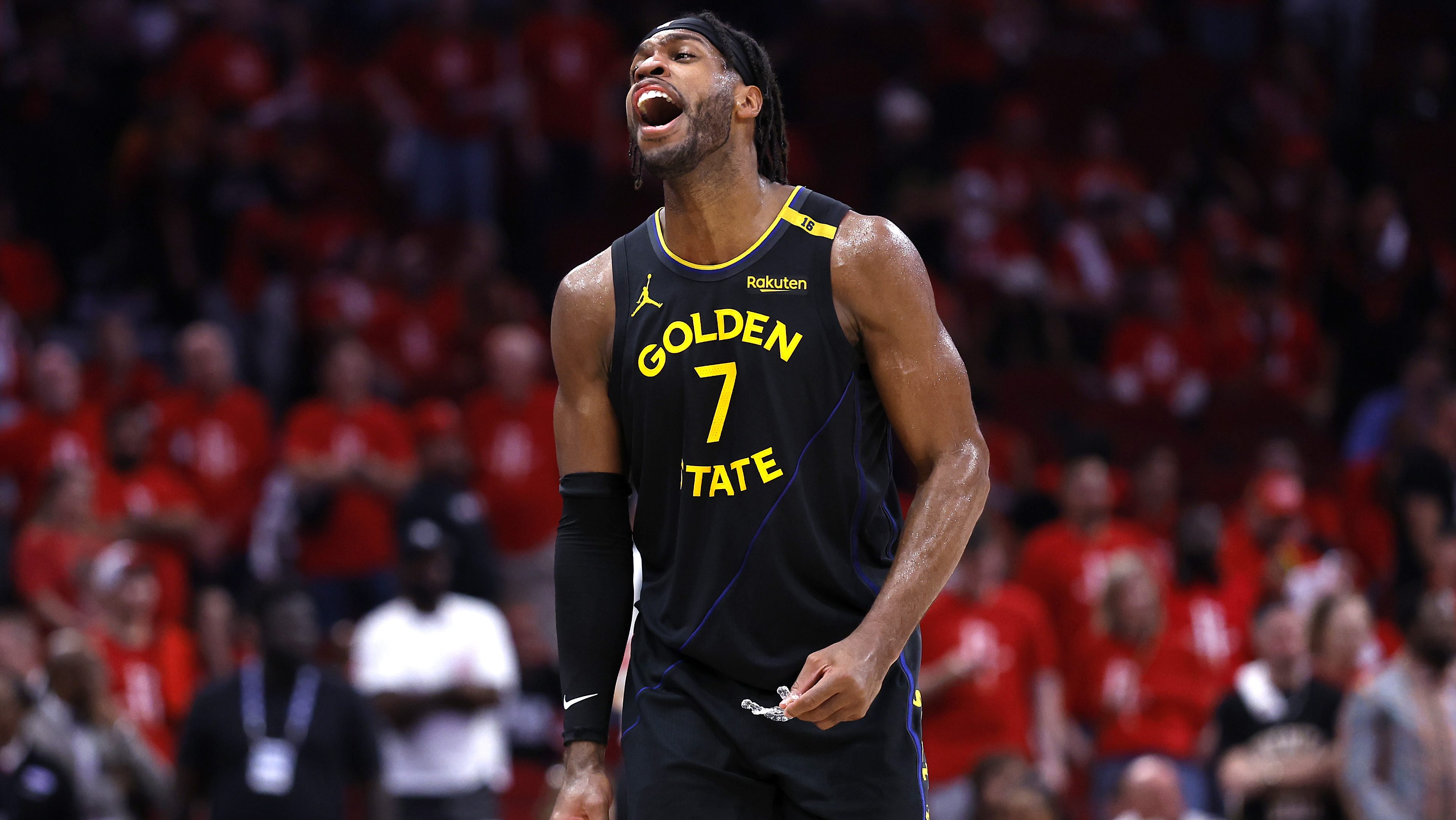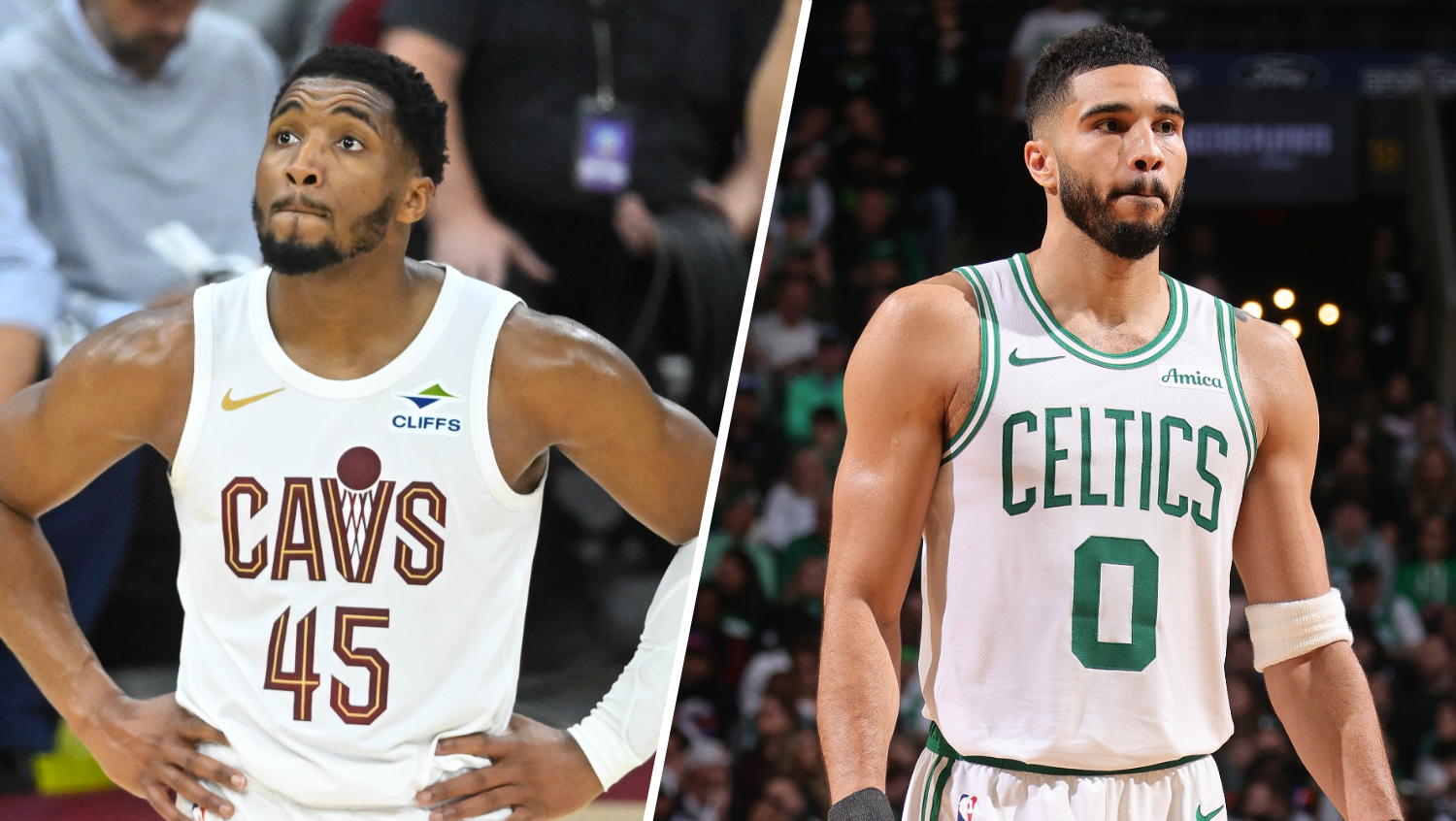Furthest a No. 7 Seed Reached in NBA Playoffs? History!
Cinderella Stories on the Court: How Far Can a No. 7 Seed Go in the NBA Playoffs?
The Upset Heard 'Round the NBA: A Look at No. 7 Seeds in the Playoffs
The Golden State Warriors starting their 2025 NBA postseason in the play-in tournament is a story many fans love to follow. Now, they’re competing for a spot in the conference finals. The magic of the NBA playoffs is undeniable, isn't it? Anything can happen, and that includes a lower-seeded team making a surprising run. So, what are the historical precedents?
No. 7-seeded Golden State bounced the No. 2 Houston Rockets from the first round of the playoffs. The Dubs jumped out to a 3-1 series lead before Houston responded with two straight wins in elimination games. Then, in a decisive Game 7 in Houston, Buddy Hield went off for 33 points as Golden State secured the series upset.
The Warriors now are matched up against the only other bottom-four seed to win a first-round series this postseason: the No. 6 Minnesota Timberwolves.
So, just how many No. 7 seeds have reached the second round? And what’s the furthest a No. 7 seed has advanced in the postseason? Here’s what to know:
How Often Do No. 7 Seeds Upset No. 2 Seeds? The Numbers Game
Since the playoff field expanded from 12 to 16 teams in 1984, the No. 7 vs. No. 2 seed matchup has become a staple of the first round. But how often does the underdog actually come out on top? The numbers tell an interesting story. It's David vs. Goliath, but who wins more often?
Historically, the No. 2 seed has a significant advantage. Think of it like this: they earned that higher seed for a reason! However, upsets do happen, and they're becoming more frequent in today's NBA, where parity reigns supreme.
Factors Contributing to Upsets
- Injuries: An injury to a key player on the No. 2 seed can drastically change the dynamics of a series.
- Matchup Advantages: Sometimes, a No. 7 seed just has a particularly favorable matchup against the No. 2 seed's style of play.
- Hot Shooting: A team getting hot at the right time can ride that momentum to an unexpected series victory.
- Coaching: A brilliant coaching strategy can sometimes outwit a more talented team.
The Rare Breed: No. 7 Seeds That Made it to the Conference Semifinals
So, it’s established that 7-seeds sometimes steal a series. Now, how many 7 seeds have then gone on to win a second series?
While upsetting a No. 2 seed is a feat in itself, advancing past the second round is an entirely different ball game. The competition gets tougher, the margins for error shrink, and the wear and tear of the playoffs starts to take its toll. Consider it like climbing a mountain – reaching the summit is hard enough, but then you have to descend!
Case Studies of Successful No. 7 Seeds
Let's take a look at some specific examples of No. 7 seeds that defied the odds and made it to the second round. Examining their journeys can give us insight into what it takes to pull off such a feat. What were their strengths? Who were their key players?
What's the Furthest a No. 7 Seed Has EVER Gone? History's Record Book
This is the million-dollar question! While many No. 7 seeds have tasted the sweet victory of a first-round upset and even reached the second round, the ultimate goal is to contend for a championship. So, what’s the furthest that a No. 7 seed has ever advanced in the NBA playoffs? Can they reach the Conference Finals, or even the NBA Finals?
The answer might surprise you, but the furthest a 7-seed has ever gone is… (suspenseful pause) the Conference Semifinals. That’s the ceiling! No 7-seed has ever advanced to the Conference Finals or NBA Finals. Think of this as the “glass ceiling” for a No. 7 seed. Can anyone break it?
Why is it So Difficult for a No. 7 Seed to Go Deep in the Playoffs? The Obstacles
Reaching the second round is impressive, but why can't a No. 7 seed go all the way? What are the inherent disadvantages they face compared to higher-seeded teams? Let's break down the challenges. It’s like running a marathon after already completing a half marathon!
The Disadvantages Faced by Lower Seeds
- Lack of Home-Court Advantage: Playing the majority of games on the road can be physically and mentally draining.
- Tougher Matchups: After upsetting a No. 2 seed, they often face a No. 3 or No. 1 seed in the second round.
- Depth Issues: Lower-seeded teams often lack the depth and experience to withstand the grind of a long playoff run.
- Mental Fatigue: The pressure of being an underdog can take its toll over time.
The Role of Star Power: Can One Player Change Everything?
In the NBA, star power reigns supreme. One transcendent player can elevate a team to new heights and carry them through tough stretches. Is it possible for a No. 7 seed with a superstar to overcome the odds and make a deep playoff run? We’ve seen players like LeBron James do it!
Examples of Star-Led Teams That Exceeded Expectations
Think about teams like the Dallas Mavericks in 2011, led by Dirk Nowitzki, or the Cleveland Cavaliers in 2016, led by LeBron James. These teams had a superstar at the helm who could take over games and inspire their teammates to play at a higher level. Can a No. 7 seed replicate that formula?
The Importance of Coaching and Strategy: The X's and O's Factor
While star power is crucial, coaching and strategy also play a vital role in playoff success. A brilliant coach can devise a game plan that exploits the opponent's weaknesses and maximizes the team's strengths. Can a coaching genius turn a No. 7 seed into a serious contender? It’s chess, not checkers!
Tactical Adjustments in the Playoffs
The playoffs are a series of adjustments. Coaches need to be able to adapt their strategies based on what they see on the court. Can a coach make the right moves to give their No. 7 seed an edge? In-game adjustments can be the difference between winning and losing!
The Impact of Injuries: How Health Can Make or Break a Playoff Run
Injuries are an unfortunate reality of the NBA. A key injury to a star player can derail a team's entire season. Can a No. 7 seed overcome injuries to key players and still make a deep playoff run? It's like trying to win a race with a flat tire!
Examples of Teams Derailing Due to Injuries
Consider what happened to the Boston Celtics in 2015 when Kyrie Irving and Kevin Love suffered season-ending injuries. Or what happened to the Los Angeles Clippers in 2016 when Blake Griffin and Chris Paul were injured. Injuries can decimate a team's championship hopes.
The Psychology of the Underdog: Embracing the Role
The psychology of being an underdog can be a powerful motivator. A team that embraces the role and plays with a chip on its shoulder can surprise a lot of people. Can a No. 7 seed harness the underdog mentality to their advantage? It’s all about believing you can win!
The Mental Game of the Playoffs
The playoffs are a mental grind. Players need to be able to handle the pressure, stay focused, and maintain their confidence. Can a No. 7 seed stay mentally strong throughout a long playoff run? Mental toughness is key.
The Rise of Parity in the NBA: Leveling the Playing Field
The NBA has become more balanced in recent years, with more teams having a legitimate shot at contending for a championship. Has this rise in parity made it more likely for a No. 7 seed to make a deep playoff run? Now there are more teams that have a chance to win.
The Impact of Rule Changes and Player Movement
Rule changes, such as the reduction in hand-checking, have opened up the game and allowed for more offensive freedom. Player movement, such as free agency and trades, has also created more parity. These factors have made it more difficult to predict who will win each year.
The Future of No. 7 Seeds in the Playoffs: What to Expect
As the NBA continues to evolve, what does the future hold for No. 7 seeds in the playoffs? Will we ever see a No. 7 seed make it to the Conference Finals or even the NBA Finals? The game continues to change year after year.
Predictions and Possibilities
It's difficult to predict the future, but it's certainly possible that we could see a No. 7 seed make a deep playoff run in the coming years. The right combination of talent, coaching, health, and luck could make it happen. After all, records are made to be broken!
Can Data Analytics Predict Upsets?
In today's NBA, data analytics are huge. Teams are using advanced metrics to make informed decisions. Can these analytics help predict which No. 7 seeds are most likely to pull off an upset or make a deep run? Perhaps there is a pattern in the data somewhere.
Data Analytics Case Studies
We can use data analytics to determine factors like pace, defensive efficiency, and scoring percentages. By looking at the numbers, are there hidden signs of what may happen in the playoffs? This is the next wave of analysis.
The Cinderella Factor: Why We Root for the Underdog
There's something inherently appealing about rooting for the underdog. We love to see a team defy expectations and achieve the impossible. Is that part of the allure of seeing a No. 7 seed go deep in the playoffs? Underdogs can inspire the world.
The Emotional Connection to Sports
At the end of the day, sports are about emotions. We get invested in teams and players, and we experience the highs and lows along with them. Seeing a No. 7 seed succeed taps into our desire to see the little guy win.
Conclusion: The Ongoing Quest of the No. 7 Seed
The journey of a No. 7 seed in the NBA playoffs is a testament to the unpredictable nature of the sport. While history suggests that reaching the Conference Finals is a long shot, the possibility always remains. The spirit of competition, the will to defy expectations, and a little bit of luck can combine to create something truly special. The furthest a No. 7 seed has gone in the NBA playoffs remains the Conference Semifinals. But the dream of going further lives on, doesn't it?
Frequently Asked Questions
1. What is the lowest seed to ever win an NBA championship?
The lowest seed to ever win an NBA championship is the No. 6 seed. The Houston Rockets accomplished this feat in 1995.
2. How often does the higher seed win in the NBA playoffs?
Historically, the higher seed wins the vast majority of playoff series. However, upsets do occur, especially in the first round.
3. What are some of the biggest upsets in NBA playoff history?
Some notable upsets include the No. 8 seed Denver Nuggets defeating the No. 1 seed Seattle SuperSonics in 1994, and the No. 8 seed Golden State Warriors defeating the No. 1 seed Dallas Mavericks in 2007.
4. What factors contribute to a successful underdog playoff run?
Factors that contribute to successful underdog playoff runs include strong star players, effective coaching, good health, a favorable matchup, and a resilient mentality.
5. Has a play-in team ever won an NBA championship?
No, a play-in team has never won an NBA championship. The play-in tournament is a relatively new concept, and it remains to be seen if a team that comes through the play-in can make a deep playoff run.

